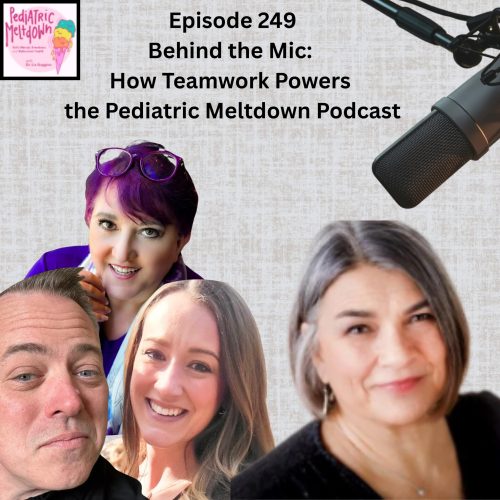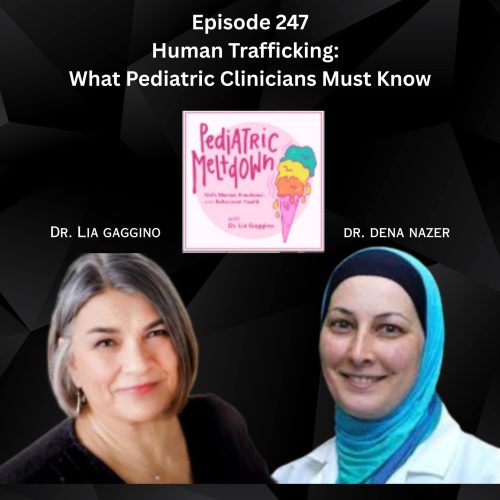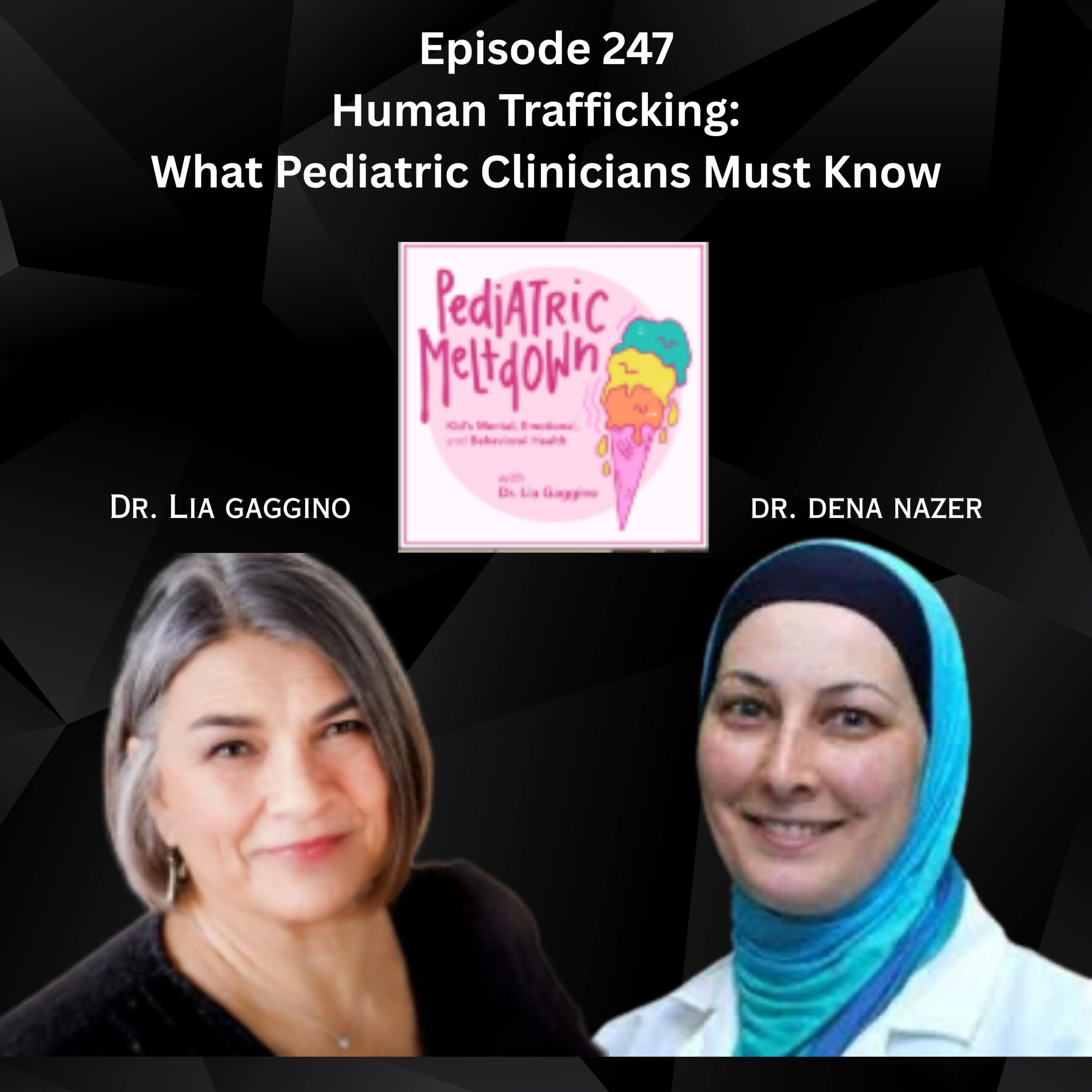Welcome to another episode of Pediatric Meltdown. My guest for today is Dr. Lisa Namerow, a Board-certified psychiatrist triple-boarded in pediatrics, child psychiatry, and general psychiatry. She has been in the pediatric healthcare space for almost 30 years, directing the consultation services to in-patient pediatrics, and the access to mental health programs for pediatricians.
Her areas of research have been pharmacogenetics, and the impact of clinical pathways and standardized care for eating disorders, somatic symptoms, and related disorders, and delirium, and serves on the American Academy of Child and Adolescent Psychiatry Committee on the physically ill child.
[00:01] Dr. Lisa Namerow Shares Her Story With Us
- Dr. Namerow shares how she became a child and adolescent psychiatrist
- She introduces the field of Pharmacogenomics
- Pharmacogenomics vs. Pharmacogenetics
[06:12] Genetics 101
- Myths about Pharmacogenomics
- Pharmacodynamic Genes and Pharmacokinetic Genes
- What we need to know
- Dr. Namerow’s analogy for genes
- The relationship between medicines and gene findings
[16:19] Deciding if Gene Testing Can Be Helpful
- What oncologists should know about prescribing medicines
- How a pediatrician can utilize genetic testing
- The screening questions to help pediatricians decide on genetic testing
[26:37] Genetic Testing in ADHD, Depression, and Anxiety
- Talking with parents about genetic testing
- How the serotonin transporter works in the body
- Genetics in the context of ADHD, depression, and anxiety
[36:10] The Best References for Primary Care
- Dr. Namerow’s interesting insights about primary care
- Her message for clinicians that you should not miss
- Dr. Namerow’s message for her younger self
[46:10] Closing Segment
- Our advice for all working moms out there
- Final takeaways:
- The role of certain relevant genes in drug response
- The industry’s detailing can be misleading
- There are some very relevant gene medication pairs
- An analogy about Gentamicin you should not miss
- Using Venlafaxine
- Facts about Cytochrome P450
- Screening questions to decide if genetic testing can be helpful
- Select medications based on evidence and guidelines
Key Quotes:
“What is true is that genes do code for both the enzymes that metabolize medicines, and they also code for the proteins that are the site of the action of medication.” – Dr. Lisa Namerow
“[It’s] heartbreaking that we don’t have a system that cares for these kids in the way that they should be cared for, and that it falls on primary care.” – Dr. Lisa Namerow
Email lnamerow@connecticutchildrens.org to connect with Dr. Namerow or check out Connecticut Children’s Medical Center to know more about her work.
Resources Mentioned:
- Pharmacogenomics: An Update for Child and Adolescent Psychiatry
- Child Psychiatry Access Programs by state
- Karolinska Institutet
- Dr. Jeffrey R. Strawn
If you’d like to connect with me, you can find me on LinkedIn, Facebook, and Twitter or email me at gagginol@yahoo.com. To learn more about me visit https://www.medicalbhs.com/
LOVE WHAT YOU HEARD? Leave us a 5-star review so we can continue to provide you with great content. Share this episode and help people know more about children’s health and well-being.








